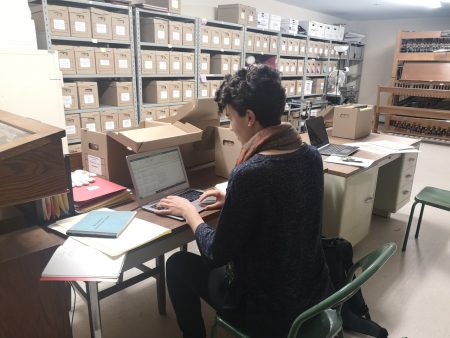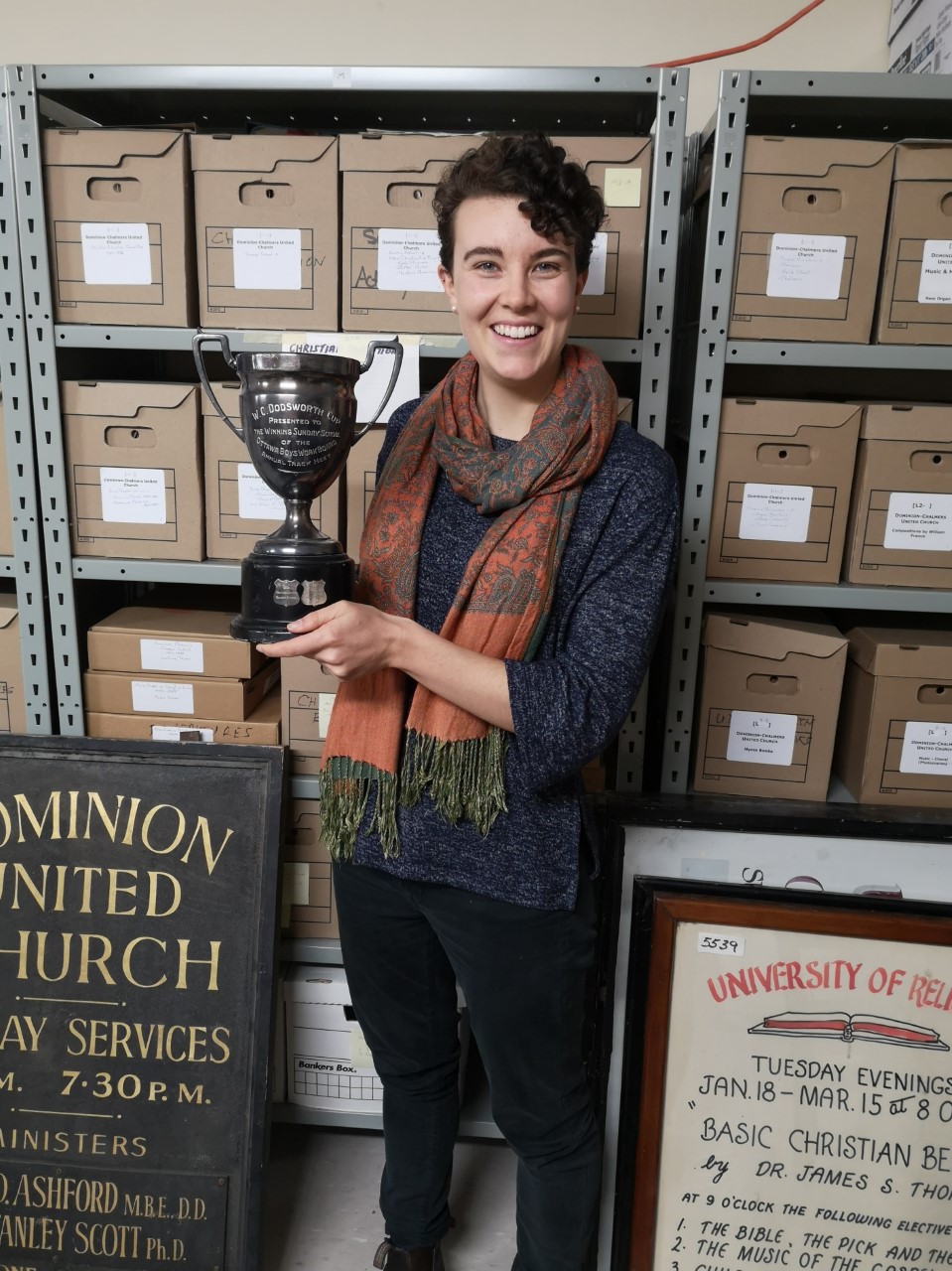Grad Student Interns at Dominion Chalmers Church
–The following story was written by Taia Gorguen-Garner.

“I hear you are singing in a church choir,” are the words Carleton Master’s Student Kate Jordan heard from Prof. David Dean, which led her to an internship of a lifetime.
“When I moved to Ottawa last year, I wanted to find a church choir,” explained Jordan. “As I began singing, I found out that one of the other women in the choir was a neighbour of David’s—a funny coincidence I thought, and made nothing more of it.”
Jordan has been working to collect and compile stories and memories from the congregants at the Dominion-Chalmers United Church. She is doing this through archival research and oral histories, but also by experiencing life at the church with the congregation.
“My role is simply to share some of the stories which capture the particular character of Dominion-Chalmers United Church, in the hope that it will assist the congregation as they enter into a new relationship with their place of worship,” shared Jordan. “Looking to the church’s past not only serves as a reminder of resilience, but may also help congregants to consider what defines the church, and what is important to the congregation. My greatest hope is that the memory project might strengthen the congregation at this transitory time.”
As part of her graduate degree in History, Jordan’s research specifically focuses on radical Protestant groups in England.
“While my work specifically tackles Puritans, the Presbyterian Church is also a result of the protestant schisms of (and following) the Reformation,” explained Jordan. “The church project and my research work in tandem with one another, are refining my ability to understand conflicts from the variety of perspectives held by people who have a vested interest in them. This is not just important to my research, but to the task of the historian as a whole. I don’t think there is anything more important right now than the ability to foster empathetic understandings between differing groups.”
Carleton acquired the Dominion-Chalmers United Church in 2018.
“The building is a beautiful example of Canadian Romanesque revival architecture; its uniqueness and particular beauty demand a significant amount of upkeep, which the congregation could no longer fund,” described Jordan. “The new chapter of the building’s life, in the form of the Carleton Dominion-Chalmers Centre, honours the legacy of the churches which inhabited the space, especially in terms of its commitment to education and the performing arts.”
If Jordan had any advice to someone looking for a similar internship she would tell them not to regard it as an internship, not a work period, nor a chance for networking.
She says: “Rather, this is the opportunity to engage profoundly with memory in a way that defies a lot of what we learn in class. The university is built on an institutional system of production, and in many ways, this is a good thing. As students, we operate within a system that demands the synthesis of knowledge and information, and then the dissemination of it shortly thereafter—you read, and then you write. In a church, however, that demand is absent. Instead, the congregation, the community, and the history demand that you sit with the stories—and that you become very conscious that in participating in this project, you are becoming a part of the church’s history. In that way, you must offer something of yourself to the work that you do.”
Dr. David Dean from the Department of History, has been supervising Jordan throughout her internship.
“In an internship, as well as in a supervisory capacity, David grants me enough space that I am able to push myself, all the while remaining attentive and present to offer guidance whenever I might want it,” expressed Jordan. “David has trusted me with this project, and that has allowed me to trust myself, which is an invaluable thing to teach.”
Jordan shared that this internship has taught her various invaluable skills.
“From working with a larger team to create some longevity for the project, to relating to individuals who are in a different cultural context from me – that is probably the most important lesson I have learned. I suspect that I will continue learning how to empathize with others for the entirety of my life, but its importance extends far beyond any work I approach.”
You can find out more about the Public History graduate program by clicking here.
